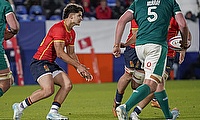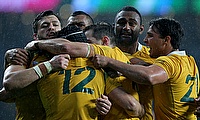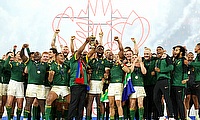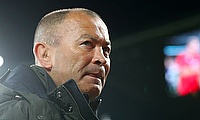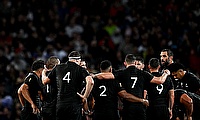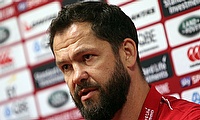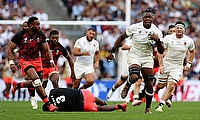The state of play in Fijian Rugby
Tony Thorpe, formerly of the Brumbies, was unveiled as Fiji Rugby’s new General Manager recently.
Thorpe will be charged with developing Fijian rugby and ensuring that not only do they stay competitive on the international scene, but that they also improve, and begin to challenge the powerhouses of test rugby.
With recent news that Taqele Naiyaravoro will likely represent Fiji at the upcoming Rugby World Cup, alongside the likes of Nemani Nadolo, Leone Nakarawa and Vereniki Goneva, the present seems bright for the island nation, but unfortunately, the future is a little gloomier for Thorpe and Fiji.
Yes, Fiji are assembling an exciting and talented squad to take on England, Wales and Australia in Pool A of the RWC, but their chances of emerging from that pool are extremely slim. This could be the best Fijian side put together since the advent of professionalism, but an unlucky draw could mean that the zenith of Fijian rugby, for the time being, is a group stage exit at the RWC.
Fijian players have always been poached by New Zealand and Australia, much as Samoan and Tongan players have also been targeted, but with French sides now actively recruiting young Fijian players, the player pool with which Fiji has to work is dwindling year upon year.
Brive have already opened an academy in Fiji, where players train and learn French, whilst other Top 14 clubs, such as Clermont and Toulouse, have strong, growing links within the country. Between the lures of professional deals in France, New Zealand and Australia for teenage Fijian players and the lack of a professional league in Fiji, young players are leaving at an alarming rate.
Just as troubling as the exodus of players, is the fact that they are then opting to play for their adopted countries, rather than represent Fiji at test level. Noa Nakaitaci, France’s dynamic winger, is perhaps the best example, whilst Nathan Hughes is set to join him, having turned down the opportunity to be part of Fiji’s RWC squad, as he hopes to represent England next year once his residency period is over.
This is nothing new in the southern hemisphere, either, with Tevita Kuridrani a born and bred Fijian, representing Fiji U20 at the 2010 Junior World Championship before opting to don the gold of Australia at senior level. It could well be similar stories for other Fijians such as Seta Tamanivalu, Jone Macailai and Samu Kerevi, all of whom are currently playing in New Zealand and Australia. Kerevi could make his Australian debut as soon as next month, with the centre included in the Wallabies’ provisional training squad for The Rugby Championship.
Fiji have always lost players to New Zealand and Australia, but were able to survive thanks to a steady stream of new and emerging talents. That stream has been threatened since French clubs have turned their attention to the island and that has shown up this year in the Junior World Trophy, where Fiji struggled and ultimately had to make do with a fifth-place finish. In the space of a year, Fiji have gone from the Junior World Championships, where they competed every year since its inception, to losing to Georgia and Uruguay in the second-tier tournament.
Fiji’s U20 manager, Bill Gadolo, has said that Fiji needs to build their own academy to help slow the player drain, but with the money on offer in the Top 14, as well as several clubs looking to increase their reach in Fiji, it is unlikely to provide the desired results without significant action from World Rugby on the poaching of young players in nations other than one’s own.
The player drain is not limited to 15s, either, with Ben Ryan voicing his displeasure last year over the lure of professional contracts in Sri Lanka, which has seen a number of sevens players give up one island nation for another, as Sri Lanka looks to develop its sporting interests outside of cricket.
With these hurdles ahead of Thorpe and Fiji Rugby, it’s difficult to see how they are going to develop the next Nadolo or Naiyaravoro. This generation of players encapsulate everything that’s great about Fijian rugby, but it might also sadly mark the beginning of the end of this proud rugby nation’s time amongst the top nations in the world, lest World Rugby take action sooner rather than later.
Fijian rugby is at a precipice and the sport owes them too much to allow them to fall.

